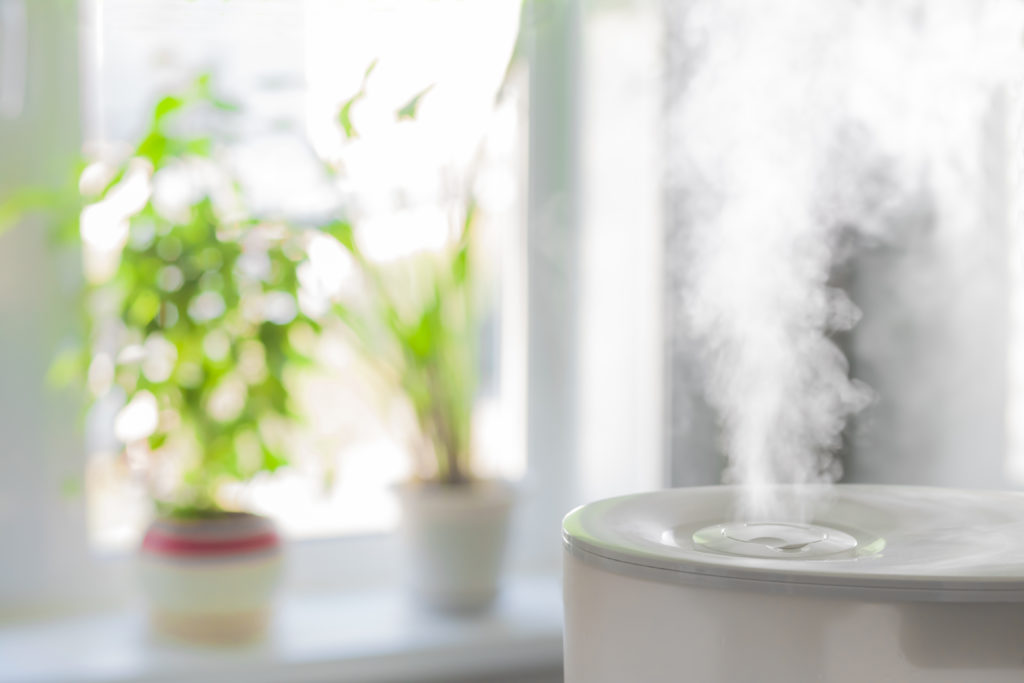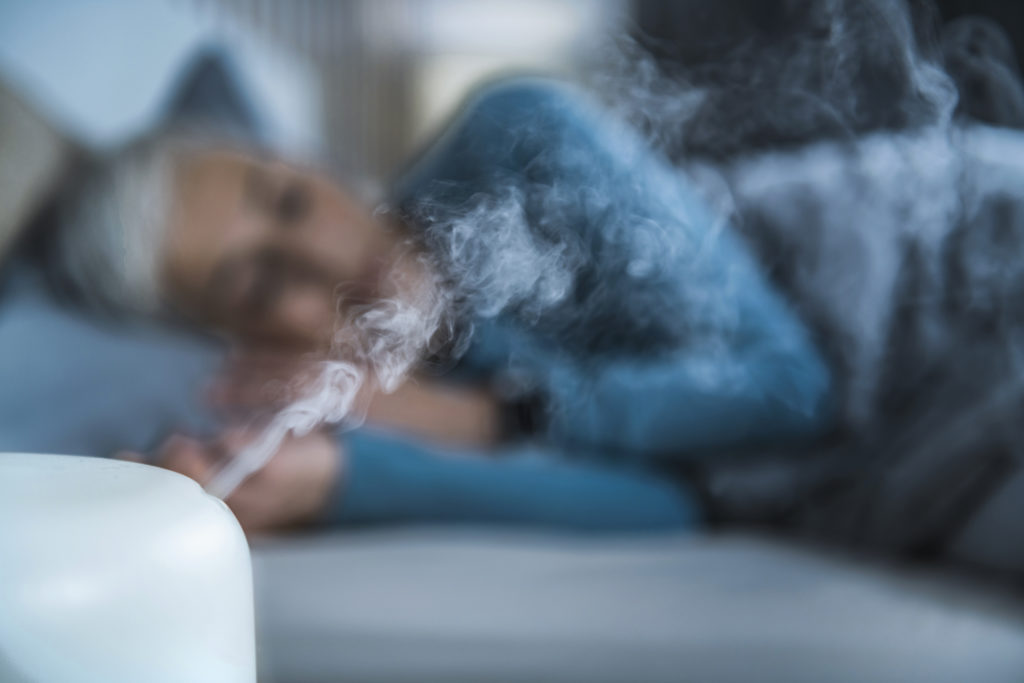
Home humidifiers are getting increasingly popular, and for a good reason. A handy, stylish, and an affordable little humidifier can be a game-changer for your breathing. It’s the simplest solution you can find to fix dry air you might be breathing all day.
If your lips and skin are dry, if you feel chills when the room is warm, you experience occasional nosebleeds or feel thirsty despite the water you’ve been drinking – the chances are that the air in your home is dry. Especially in the winter, the inside air tends to get too dry and can cause health issues and furniture decay. It also causes an increase in static electricity, which can damage your electronic devices.
We break down the importance of having a humidifier and its positive impact on your health. We’ve also tested the best humidifiers available and ranked them based on effectiveness and intuitiveness.
What Is a Humidifier?

As its name suggests, a humidifier increases air humidity and prevents air dryness by adding moisture to the air. There are different types of humidifiers: central humidifiers, impellers, ultrasonic, steam vaporizers, evaporators.
Vaporizers boil water and release warm steam into the air. It’s a simple and least expensive technology for controlling air humidity. Impellers diffuse water into fine droplets that you see as a cool mist leaving the humidifier. If you like cool fog, you can also check out ultrasonic technology. These humidifiers vibrate a metal diaphragm at an ultrasonic frequency, creating water droplets. For a self-regulating humidifier, keep an eye out on wick systems.
If you’re planning to invest in a humidifier, pick the technology that suits your needs best.
Can Humidifiers Help With Congestion?
Congestion happens if the air you breathe is too dry, preventing the mucus in your nose from flowing correctly. When the mucus doesn’t flow, it doesn’t drain as it should. It can cause pain, discomfort, difficulty breathing, and eventually sinusitis – a painful tissue swelling. The inside of your nasal canals should be humid and warm. It feels colder when the air is dry, and everything inside your nose tends to get stuck. A humidifier can help to soften the discharge. It mainly applies for the winter season, when heating is high both at the workplace and at home.
However, this doesn’t mean your humidifier should necessarily be working 24/7. To know if your humidifier should run constantly, see our key factors for deciding. Too much moisture in the air can act as fertile soil for fungi and mold. This can only worsen your sinus pain or allergies that you were trying to relieve in the first place. To ensure there’s no excess humidity, set your unit to 30% – 50%.

Humidifier Or Vaporizer
The best weapon to successfully battle air dryness is a humidifier. Or was it a vaporizer? Here’s how and what to choose. In short – a humidifier releases cold mist, while a vaporizer releases warm mist. Depending on your symptoms and the condition you want to alleviate, you will choose warm or cool mist.
Allergies
If you’re prone to allergies, you should be very careful with how you use both the humidifier and the vaporizer. However, a vaporizer is a better option since the warm mist tends to have fewer contaminants. Do not forget to maintain the humidity between 30% and 50%, as everything below or above can cause more damage than good.
Cold, Flu, Bronchitis
Coughing, mucus, sore throat, sinus congestion – where do we begin! When it comes to alleviating these symptoms, it’s all about personal preference. Increasing air moisture in the room where you’re most likely to spend a few days in bed will help significantly! Higher air humidity will relieve your congestion and allow mucus to discharge, making it easier for you to breathe. Both the humidifier and vaporizer will work well.
When to be extra careful
If you have asthma, bear in mind that both of these devices don’t come recommended. Hypersensitivity of the airways increases the possibility of constricted airways. You should do everything to avoid irritating your airways more, and that includes using humidifiers and vaporizers.
Since vaporizers use heat, they can pose a real danger to children. Never use them near kids as they can get burned. If you want to increase humidity in a nursery or your kids’ room, always choose a humidifier over a vaporizer.
Is it OK to put essential oils in a humidifier?
The suitable essential oils can help with your symptoms of cold, congestion, and even allergies. But, can you put a few drops in your humidifier and hope for the best? In short – no. If you want to combine your humidifier with essential oils, make sure you use an ultrasonic one that’s essential-oil-friendly. Otherwise, you can do more damage than good.

Reduce Congestion in a Jiffy
Now you know what to do if you’re experiencing some symptoms of dry air at home or the office. Humidifiers are a great and simple solution that will leave you breathing better in no time!
